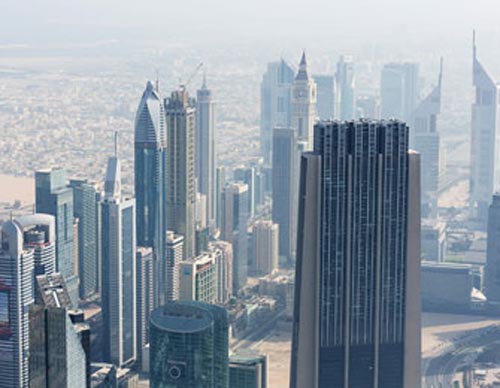15% hike in budget will help provide better services for Emiratis and residents.
The third session of the UAE’s budget 2014-2016 is expected to jump by 15 per cent, reflecting the strength of the country’s economy and its ability to continue growing amid preparedness and ability of the federal government to provide better services to the citizens and residents alike.
This was announced by Shaikh Hamdan bin Rashid Al Maktoum, Deputy Ruler of Dubai and UAE Finance Minister, during a news conference in Dubai on Saturday, according to Wam. The value of the third session of the budget is estimated at Dh140 billion compared to Dh122 billion of the second session of budget 2011-2013, Shaikh Hamdan said.
In line with the directives of the President, His Highness Shaikh Khalifa bin Zayed Al Nahyan, and His Highness Shaikh Mohammed bin Rashid Al Maktoum, Vice-President and Prime Minister of the UAE and Ruler of Dubai, the Ministry of Finance seeks to continue the allocation of funds to the ministries and autonomous federal agencies in order to implement the strategy of the federal government, the finance minister said.
The federal government’s strategy aims at achieving more welfare and prosperity for Emiratis through enhancement of government services, boosting of security and safety, development of education, upgrading of healthcare services, provision of housing and sponsoring of special categories in line with the directives of wise leadership to provide decent living conditions for the pensioned civil and military personnel, he explained.
Shaikh Hamdan said the ministry is considering imposing selective tax on some harmful goods like tobacco, alcoholic beverage, soft drinks, and some non-essential commodities. He added that the ministry is also mulling the possibility of imposing direct and indirect tax in the country.
Shaikh Hamdan said the ministry is currently conducting a study on levying a fee on remittances being sent abroad. The ministry, he said, would review the proposals regarding the mechanism on how to collect such fees, if they are enforced.
Asked if the ministry thinks about enforcing tax on income, Shaikh Hamdan said that tax on income is divided into two types: tax on individuals and tax on companies. He said the ministry has no plan to impose tax on individuals. However, it has been conducting studies on the economic effects for applying tax on companies.
He mentioned that the general budget of the fiscal year 2014 stood at Dh46.2 billion, which is higher by Dh1.6 billion compared to 2013 and zero deficit. He pointed out that the volume of the federal general budget combined for the financial year 2014 stood at Dh52.5 billion. The revenues and expenses include the ministries and federal authorities.
Regarding the volume of projects of the ministries and federal institutions during this year, the minister said that the government is embarked on updating and replacing the projects in terms of buildings for ministries, federal institutions, schools, hospitals, health centres and other premises.
Shaikh Hamdan said the total cost of the projects to be implemented by the ministries and federal institutions during 2014-2016 would be Dh23.8 billion, including Dh10.4 billion the cost of the federal ministries, Dh8.2 billion for development projects of electricity and water — to be implemented by the Federal Electricity and Water Authority (Fewa) and Dh5.2 billion for the Zayed Housing Programme projects.
He said Dh1.8 billion has been allocated for the implementation of 11 projects of the Ministry of Health (MoH), covering projects of hospitals, clinics and health centres. He noted that the budget of MoH surged to Dh3.7 billion in 2014 compared to Dh3.4 billion last year.
On the date of issuance of the state public debt law, the Minister of Finance said that the federal government has a special vision to develop the government bonds market characterized by strong liquidity and able to support the effectiveness of the financial market at the state level, adding that the establishment of a government securities market would be a key tool to find alternative effective sources of funding that provide funding for major infrastructure projects at the lowest possible cost and at acceptable risk levels.


